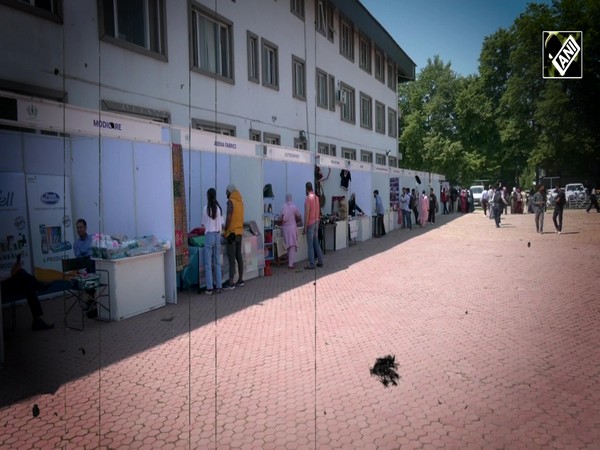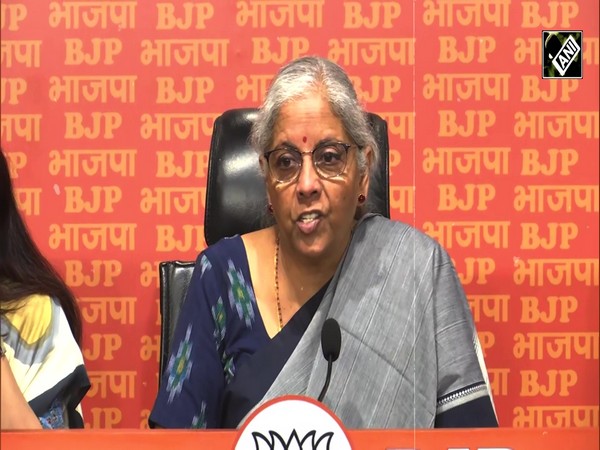Time for Sri Lankan leaders to revisit statecraft: Report
Mar 03, 2022

Colombo [Sri Lanka], March 3 : Amid a messy economy, it is time for the Sri Lankan leadership to revisit their statecraft to enable their emerald island to re-emerge as the polar star for the seafarers.
The genesis of the present crisis of import restrictions, the decline in forex reserves, external debt and balance of payment issues can be traced to the wrong person at the helm of the apex bank of the country, reported a think tank, Policy Research Group (POREG).
Ajith Nivard Cabraal was the personal pick of the political masters last September to head the Central Bank of Sri Lanka (CBSL).
Sri Lankan Prime Minister Mahinda Rajapaksa believed the appointment was the badly needed shortcut to economic nirvana but Cabraal failed to deliver. In fact, he pushed the country into a deeper crisis by his whims and actions, said the think tank.
Cabraal, a chartered accountant by training, has opposed any recourse to the IMF soft loans. It has been his stand for over a year but he stuck to the same refrain with a 'blunt' tweet after the finance minister Basil Rajapaksa publicly said in early February that his government had "written to them (IMF) and "one of these days they will come and give us advice about things that we do not know".
IMF could have offered some breather like "it did on as many as 29 times in the past 50 years," as Co-Cabinet spokesman and Plantation Minister Dr Ramesh Pathirana, told reporters.
Now Sri Lanka prefers to borrow from China to repay all outstanding external debt. The Chinese debt itself accounts for about 6 per cent of the GDP of the island nation.
Two years ago, Colombo asked the IMF to convert the last tranche worth USD 200 million of USD 1.5 billion under the ongoing Extended Fund Facility (EFF) program to Rapid Credit Facility (RCF). The Brettonwoods twins rejected the request.
While criticizing the IMF for this, Sri Lanka doesn't mind delays in USD 1.5 billion currency swap facility from China due to Chinese demands for minimum forex requirement necessary to receive the currency swap.
Economists aver that Cabraal and his team at the apex bank are following the wrong prescription. And assert that their managed floating/pegged exchange rate pegs the currency artificially at a certain rate and the Central Bank prints currency to manage the rate, said POREG.
Moreover, the printing of money led to a shortage of foreign currency. Last year, Sri Lanka printed 1.2 trillion rupees leading to an outflow of foreign currency. Inflation zoomed as a consequence to double digits, 14.2 per cent, already.
Cabraal's ill-conceived hedging deals resulted in USD 200 plus million loss to the exchequer and investments in Greek Bonds made the country poorer by a staggering 10 billion Rupees.
A forensic audit (FA) of Sri Lanka bond market dealings has uncovered a link between him and a controversial primary dealer, Perpetual Treasuries Ltd (PTL), reported POREG.
The report found that Cabraal's relatives held influential positions in select primary dealers or their related companies. Amongst these beneficiaries are his sister Siromi Noel Wickramasinghe and niece Shibani Renuka Thambiayah.
This digression into the Cabraal narrative throws up one and only home truth: Sri Lanka needs professional financial planners at the helm of the Federal Finance Ministry and the Central Bank.
There are no shortcuts to efficient fiscal management. Sri Lanka also must quickly come to grips with the crisis. Under the Rajapaksas, Sri Lanka has come to rely on the Bamboo Capitalist, for whom money has no colour.
While enlisting Beijing's support in giving a makeover to the war-ravaged Lankan economy is neither wrong nor undesirable, putting blind faith in the Yuan supremacy alone will not untangle the knot of external debt, low forex reserves, the balance of payment deficit, an overvalued currency.
Anyhow, there is no free lunch even in the land of Confucius, as its South China neighbours have learnt the hard way. And Colombo has no different experience either with the Xi Jinping regime.
It is essential, therefore, for Sri Lanka to prioritise its economic and sovereign requirements and not allow itself to be marshalled to sub-serve China's long-term ambitions in the Indian Ocean region.



















